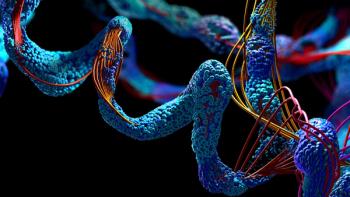
Alice E. Till Selected AAPS President-Elect
Till, a PhRMA vice president, will lead AAPS starting in November; Executive Council and Section leadership positions were also announced.
Alice E. Till, PhD, vice president of Science Policy & Technical Affairs at Pharmaceutical Research and Manufacturers of America (PhRMA), has been elected to serve as president-elect of the
“On behalf of AAPS, I congratulate Dr. Till on being elected president of the association,” said John Lisack, Jr., CAE, executive director of AAPS. “She has been a tremendous asset to our organization for over 27 years, is a charter member, and AAPS Fellow. A true visionary, Alice will help lead AAPS to new altitudes during her tenure.”
Till stated that during her tenure as president, she will work to ensure AAPS continues to be structurally and functionally prepared to fulfill opportunities, and address the challenges that accompany its position, as well as steadfastly serve the needs of future pharmaceutical scientists.
In addition to the new president-elect, Christopher R. McCurdy, PhD, RPh of the University of Mississippi and Andrew M. Vick, PhD of WIL Research were elected AAPS Members-at-Large. They join Binodh DeSilva, PhD, Russ Weiner, PhD, and Dannette Doolitte, PhD as members of the 2014 AAPS Executive Council.
AAPS also announced leaders for the organization’s nine scientific discipline-based sections:
- APQ Section Secretary/Treasurer: Eliza Fung, PhD, Bristol-Myers Squibb
- BIOTEC Section Vice Chair: Meena Subramanyam, PhD, Biogen Idec
- BIOTEC Section Secretary/Treasurer: Boris Gorovits, PhD, Pfizer, Inc.
- CPTR Section Vice Chair: Arnab Mukherjee, PhD, Pfizer, Inc.
- CPTR Section Secretary/Treasurer: John D. Davis, PhD, Genentech Research and Early Development
- DDDI Section Vice Chair: Robin M. Zavod, PhD, Midwestern University
- FDD Section Vice Chair: Joseph P. Reo, RPh, PhD, Merck Consumer Care
- MSE Section Vice Chair: Ruta Y. Waghmare, PhD, EMD Millipore
- MSE Section Secretary/Treasurer: Claire Scanlan, EMD Millipore
- PPB Section Vice Chair: Roy Haskell, PhD, Bristol-Myers Squibb
- PPDM Section Vice Chair: Pankaj B. Desai, PhD, University of Cincinnati
- PPDM Section Secretary/Treasurer: Shannon Dallas, PhD, Janssen Research and Development, LLC
- RS Section Secretary/Treasurer: Lynn Gold, PhD, Camargo Pharmaceutical Services
Newsletter
Stay at the forefront of biopharmaceutical innovation—subscribe to BioPharm International for expert insights on drug development, manufacturing, compliance, and more.




